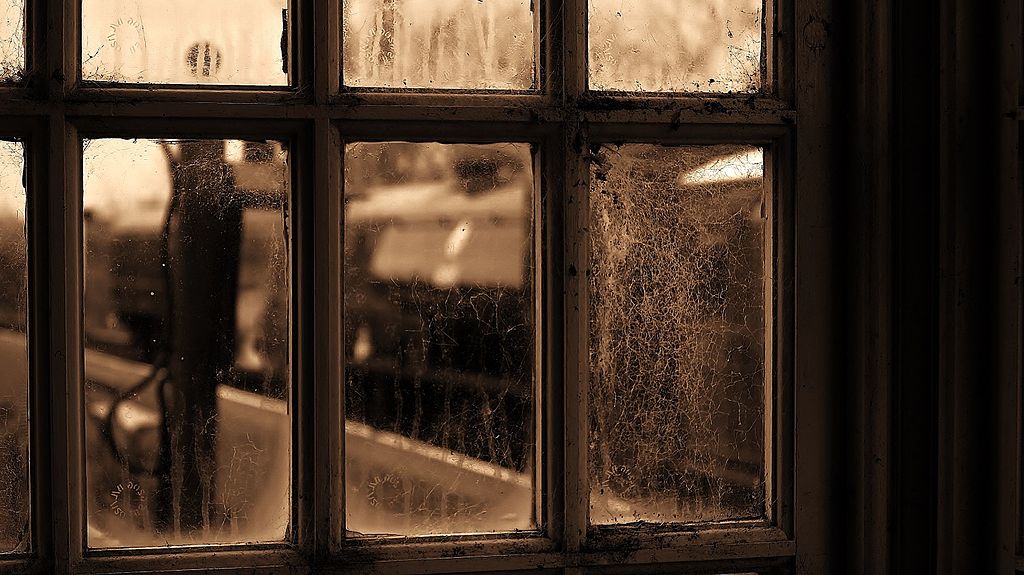Sifting through the Fragments

With my knife I slash open the plastic bag, and the smell of the mulch hits me: damp cedar, fungal spores, moss, creosote. Something flashes, and for a moment I’m not planting boxwood with my family. I’m in Michigan, working as a landscaper. It’s never quite warm enough. I smell the green exhalations of reedy lakes at twilight and the acrid cigarette smoke on the porch, feel the lightness of my body, hear Eminem blasting from passing cars. I see the alleys thick with catnip growing wild.
The moment passes, but I’m left off-kilter, longing for a lost time. It’s one of those “Proust effect” moments, named for the moment in Marcel Proust’s À la recherche du temps perdu (“In Search of Lost Time”), when the narrator bites into a madeleine and the flavor invokes a host of buried memories. There’s a scientific theory why smells trigger such strong memories: the neurons that process smells send a signal to the olfactory bulb in the brain, which connects directly with both the amygdala, which processes emotion, and the hippocampus, which deals with memory and cognition. This physical proximity of brain sections is why smell is especially tied to memory.
But this doesn’t explain why I am nostalgic for a time when I was far from happy. The brief evocative rush of memories told me: “You miss this. You want this back.” But really, I don’t.
I hadn’t moved to Michigan to be a landscaper. I’d gone to take my first teaching job, at a hyper-conservative startup college near Ann Arbor. Prior to that, I’d been pursuing a Ph.D. at a Texas university and thriving, both socially and academically. But I’d gotten into a convoluted romantic situation and wanted to extricate myself, so when the provost of the new college called and offered me a job, I took it.
Moving away, ironically, made the romantic situation more fraught. Between that and the new college’s toxic atmosphere, I was soon miserable, and dealing with my misery in predictably self-destructive ways. I thought a summer working outdoors would be wholesome, but not even sunlight and hard work could keep me from spiraling into a vortex of bad decisions. Soon, my glamorous and promising grad school life seemed a world away.
Of course, I was nostalgic for that, too. I still am. And for the years that went before, and the years that came after.

Like many powerful forces, nostalgia is often irrational. Why do we long for a past that was hard and painful? Is it because we miss the hopefulness of youth, the sense of infinite possibility? Perhaps we wish we had a chance to make better choices, to take advantage of all that latent potential. Then, too, there’s the selectiveness of memory. Years removed, I’ve forgotten much of the rage and despair, and remember mostly the happier times. Or maybe the past is desirable simply because it is the past, and therefore lost forever, the ultimate unattainable thing.
The human inclination to romanticize the past can be dangerous, not just personally, but on a broad cultural scale. In a 1995 essay for the New York Review of Books, Italian philosopher Umberto Eco identified “the cult of tradition” as one of the common markers of fascism, across different times and places. Fascist movements yearn for a heroic past, a national golden age when things, and people, were better. Both the Nazis in Germany and the Fascists in Italy rooted their schemes for a glorious future in the myths of an imaginary glorious past. Today, in the United States, the MAGA movement obsesses over a fantasy past in which America was “great.”
This trend exists in religion as well. I see it among my fellow Catholics who lean traditionalist, yearning not only for older modes of worship and liturgy, but also for an idyllic—and imaginary—Catholic past where men were strong, women were fertile, and everyone was pious, hard-working, cheerful, and pretty. To judge from the images they share, everyone was also white and heterosexual. No one was disabled. No one was depressed.
The imagery favored by traditionalist Catholics is often based loosely on either Medieval Europe or 1950s America. That these two eras have nothing to do with each other is irrelevant. They don’t want the real historical past any more than I want my real personal past. What we long for is something we’ve fabricated in our imaginations. If traditionalists could time travel to the Middle Ages, they’d find themselves in a civilization far more bawdy, irreverent, chaotic, and queer than the fantasy medieval era they depict in memes. Their romance with the medieval would very quickly fizzle away.
Longing for a made-up past and discontent with the present is one reason so many traditionalists incline toward political movements that have strong marks of fascism, including the MAGA movement in the U.S. today. And even if this cultural nostalgia doesn’t lead a person to the point of supporting evil regimes, it can still be dangerous since it distracts from the obligations of the present moment.
I’m inclined to have little patience with traditionalists. I’m tired of people telling me I need to “put myself in their shoes” and “understand where they are coming from,” when their actions and political decisions do so much harm. But maybe, whether I like it or not, I am already in their shoes. Recognizing my own susceptibility to the malady of nostalgia should remind me to stay humble —and be on guard against the temptation to wallow in the sludge of an imaginary past. It’s not that I should put the past behind me and face forward. It’s that, if I am going to look at the past, I need to be honest about it, even if that makes for a rather brutal experience.
If we can face that brutality long enough to find the real past, not just beneath the layers of make-believe, but tangled up in myth and legend, there may be some wisdom in nostalgia. The past, after all, is part of who we are, which is why we cherish personal anecdotes and family stories, why we pass down tokens and heirlooms. Often, it is why we write: to leave a true record of what happened so that future generations, or future selves, can learn from both our mistakes and our successes. Forgetting the past, the real past, makes us more likely to fall for the seduction of revisionist history.
Sometimes, facing the past is a chance for repentance. When I look back on the dumb decisions I made, in the year after I left my graduate program, it’s tempting to make excuses: I was young. I was steeped in false ideologies. I was treated badly by men. I was treated badly by institutions. All that is true, but in the end, I was the one who made the choices I made, and that’s something I have to live with.
But the past can also sustain us. It can give us the stories that motivate us to carry on. My own heritage is interfaith, both Christian and Jewish, and I can see how, for my Jewish ancestors, driven from place to place, exiled from their own land, pushed to the margins of society, tradition provided a sense of continuity and connection. Tradition need not be a stultifying force. It can be a living repository for the memories, both beautiful and horrific, of an entire people.
To forget the past is to forget ourselves. As mortal beings on the threshold of eternity, but always hurtling through time, we clutch at the tatters we can preserve, as tokens of who we were. It’s part of how we hold ourselves together and hold ourselves accountable.
ABOUT THE AUTHOR

Rebecca Bratten Weiss is a writer and academic residing in rural Ohio. She is the digital editor for U.S. Catholic magazine and can be found at rebeccabrattenweiss.com.



